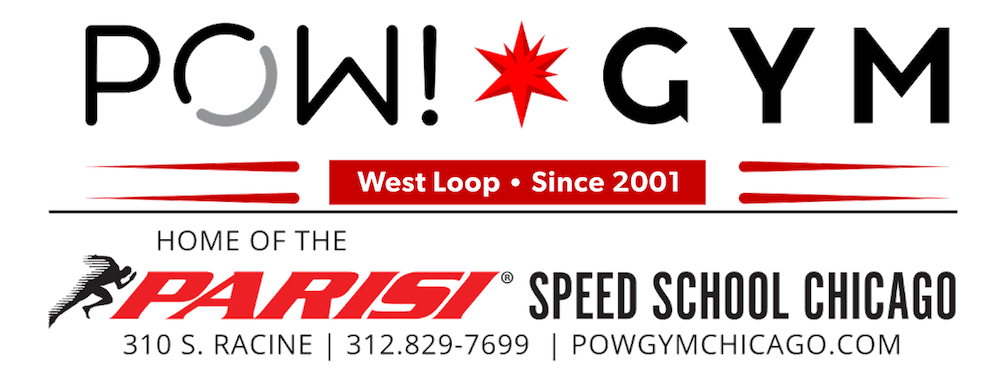
Collagen Building Blocks for Performance
Scott Berliner, RPh Clinical Pharmacist & Jessica Berliner, MS Integrative Nutritionist
Supplements are not a substitute for a healthy diet or lifestyle. Instead, they should complement a well-rounded nutritional foundation. Whenever possible, focus on consuming nutrient-rich whole foods that naturally provide critical components for athletic performance.
For young athletes, proper nutrition is the cornerstone of long-term success and peak performance. A balanced diet fuels effective training, rapid recovery, and optimal competition results. Whole foods such as lean proteins, whole grains, fruits, and vegetables deliver essential nutrients to energize muscles, support endurance, and reduce injury risk. Additionally, maintaining a healthy diet enhances the body's ability to absorb and utilize supplements, ensuring they act as enhancements rather than replacements. By prioritizing nutrition, young athletes establish a strong base for sustained growth and peak athletic achievement.
Why Collagen Matters
Collagen is a vital protein that supports the health of joints, skin, and connective tissues. It is naturally synthesized in the body using amino acids derived from dietary protein. Without adequate protein intake, the body cannot produce sufficient collagen, making dietary sources of amino acids crucial.
Collagen itself is not a complete protein, so it is essential to include other protein sources in the diet to maintain optimal muscle development. Excellent protein sources include beef, poultry, fish, eggs, dairy, quinoa, and buckwheat.
Collagen comes in five primary types, with Types I, II, and III being most beneficial for athletes:
Type I: Supports skin and connective tissue strength.
Type II: Enhances cartilage and joint health.
Type III: Aids in maintaining elasticity in blood vessels and connective tissues.
By supplementing with collagen, athletes can strengthen joints, ligaments, and tendons, reducing the risk of injury and improving joint structure. Additionally, collagen promotes gut health, reduces inflammation, and boosts immune function, enabling athletes to stay healthy and perform at their best.
Recommended Collagen Supplements:
Whole Body Collagen by Designs for Health: Utilizes patented forms of collagen, including Fortigel (for joint cartilage), Fortibone (for bone health), and Verisol (for skin elasticity).
Collagen Fit by Thorne Research: Combines collagen with Nicotinamide Riboside to support tissue repair and cellular health.
Sources:
Berliner, Scott & Jessica Berliner. Integrative Nutrition and Clinical Pharmacology Insights.
Collagen, Creatine, and Joint Support: Building Blocks for Performance
Collagen
Scott Berliner, RPh Clinical Pharmacist & Jessica Berliner, MS Integrative Nutritionist
Supplements are not a substitute for a healthy diet or lifestyle. Instead, they should complement a well-rounded nutritional foundation. Whenever possible, focus on consuming nutrient-rich whole foods that naturally provide critical components for athletic performance.
For young athletes, proper nutrition is the cornerstone of long-term success and peak performance. A balanced diet fuels effective training, rapid recovery, and optimal competition results. Whole foods such as lean proteins, whole grains, fruits, and vegetables deliver essential nutrients to energize muscles, support endurance, and reduce injury risk. Additionally, maintaining a healthy diet enhances the body's ability to absorb and utilize supplements, ensuring they act as enhancements rather than replacements. By prioritizing nutrition, young athletes establish a strong base for sustained growth and peak athletic achievement.
Why Collagen Matters
Collagen is a vital protein that supports the health of joints, skin, and connective tissues. It is naturally synthesized in the body using amino acids derived from dietary protein. Without adequate protein intake, the body cannot produce sufficient collagen, making dietary sources of amino acids crucial.
Collagen itself is not a complete protein, so it is essential to include other protein sources in the diet to maintain optimal muscle development. Excellent protein sources include beef, poultry, fish, eggs, dairy, quinoa, and buckwheat.
Collagen comes in five primary types, with Types I, II, and III being most beneficial for athletes:
Type I: Supports skin and connective tissue strength.
Type II: Enhances cartilage and joint health.
Type III: Aids in maintaining elasticity in blood vessels and connective tissues.
By supplementing with collagen, athletes can strengthen joints, ligaments, and tendons, reducing the risk of injury and improving joint structure. Additionally, collagen promotes gut health, reduces inflammation, and boosts immune function, enabling athletes to stay healthy and perform at their best.
Recommended Collagen Supplements:
Whole Body Collagen by Designs for Health: Utilizes patented forms of collagen, including Fortigel (for joint cartilage), Fortibone (for bone health), and Verisol (for skin elasticity).
Collagen Fit by Thorne Research: Combines collagen with Nicotinamide Riboside to support tissue repair and cellular health.
Sources:
Berliner, Scott & Jessica Berliner. Integrative Nutrition and Clinical Pharmacology Insights.
Designs for Health: Whole Body Collagen
Thorne Research: Collagen Fit
Parisi, Bill. Fascia Training: A Whole-System Approach.
"Collagen Types and Athletic Performance" - Journal of Sports Science (2023).
Designs for Health: Whole Body Collagen
Thorne Research: Collagen Fit
Parisi, Bill. Fascia Training: A Whole-System Approach.
"Collagen Types and Athletic Performance" - Journal of Sports Science (2023).
Image taken from https://www.ifnacademy.com/blogs/collagen/.


